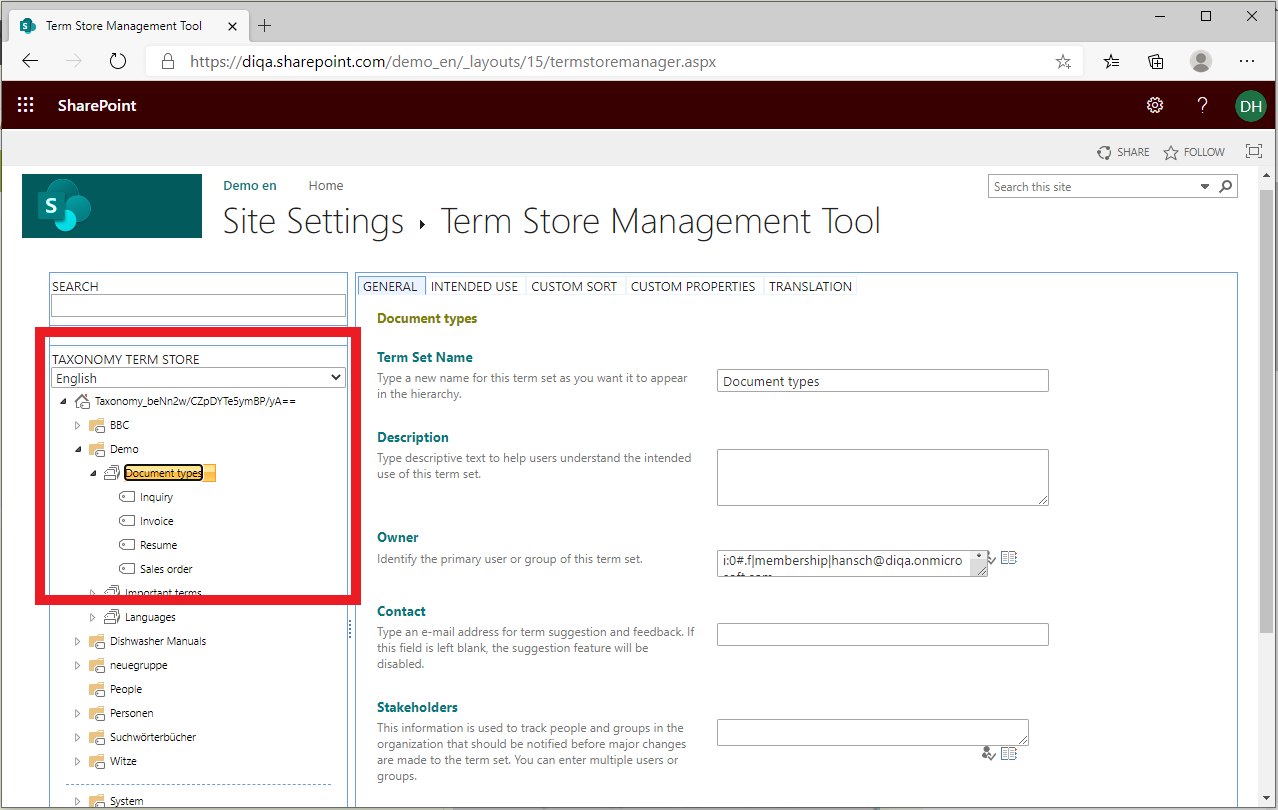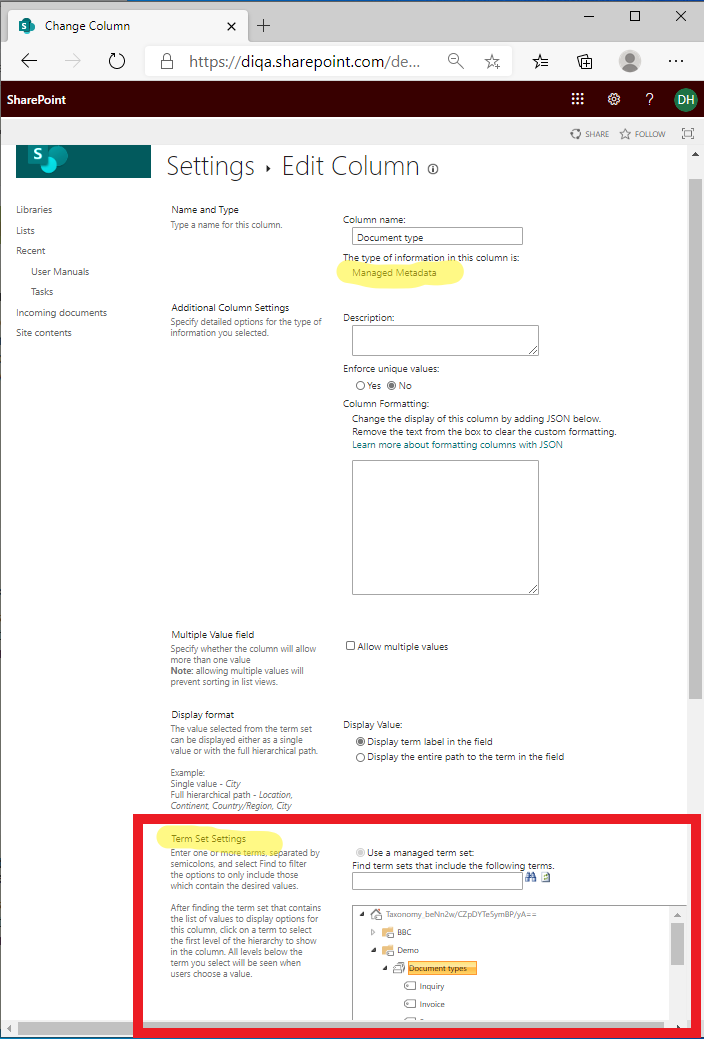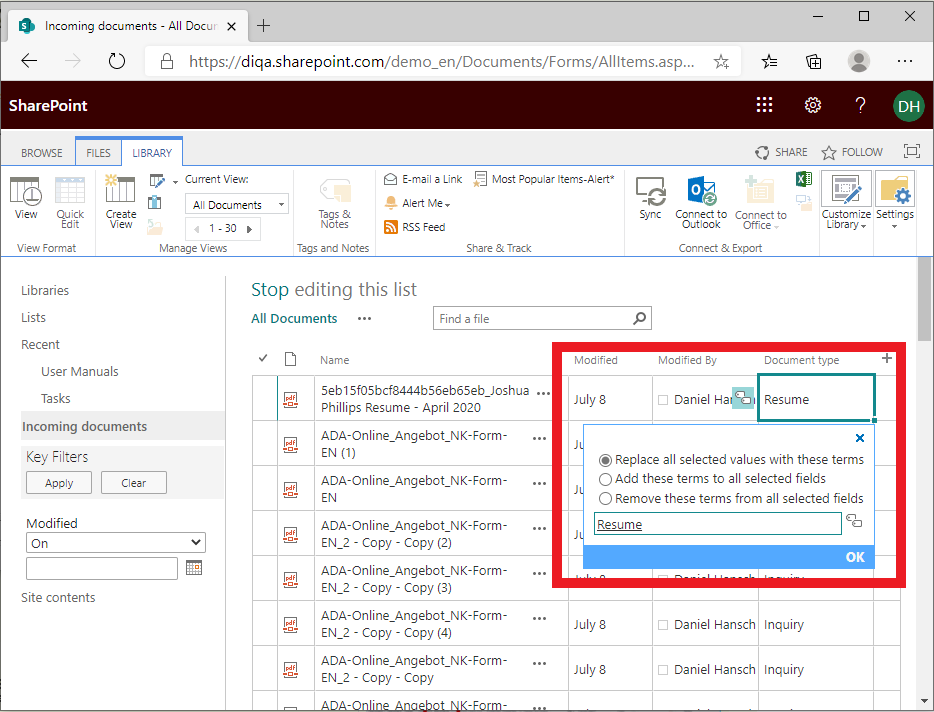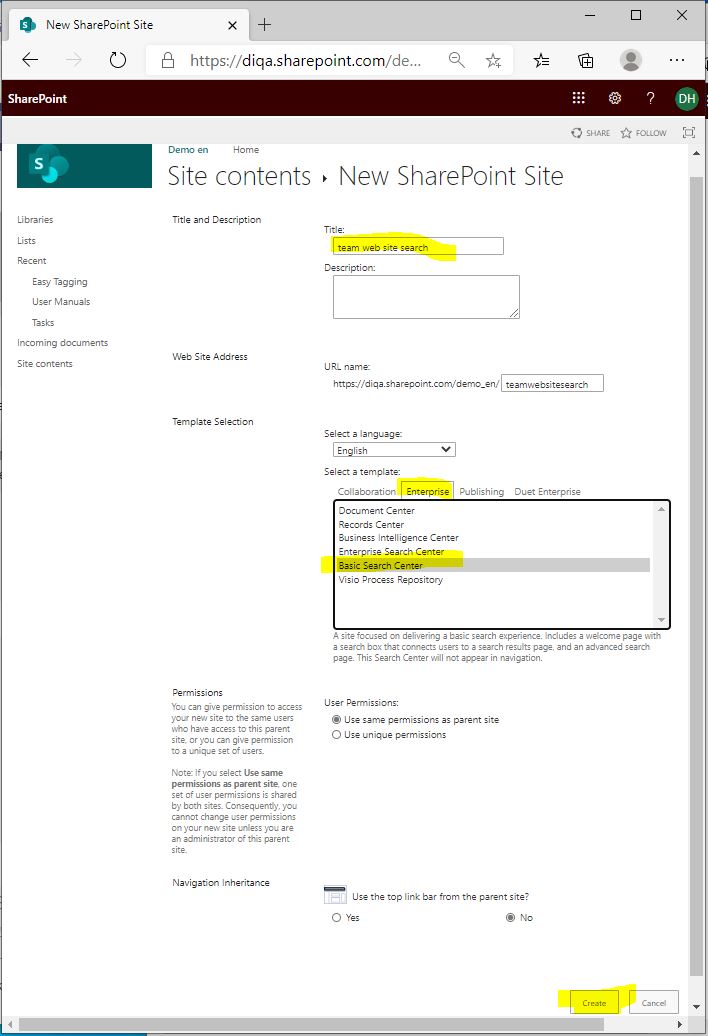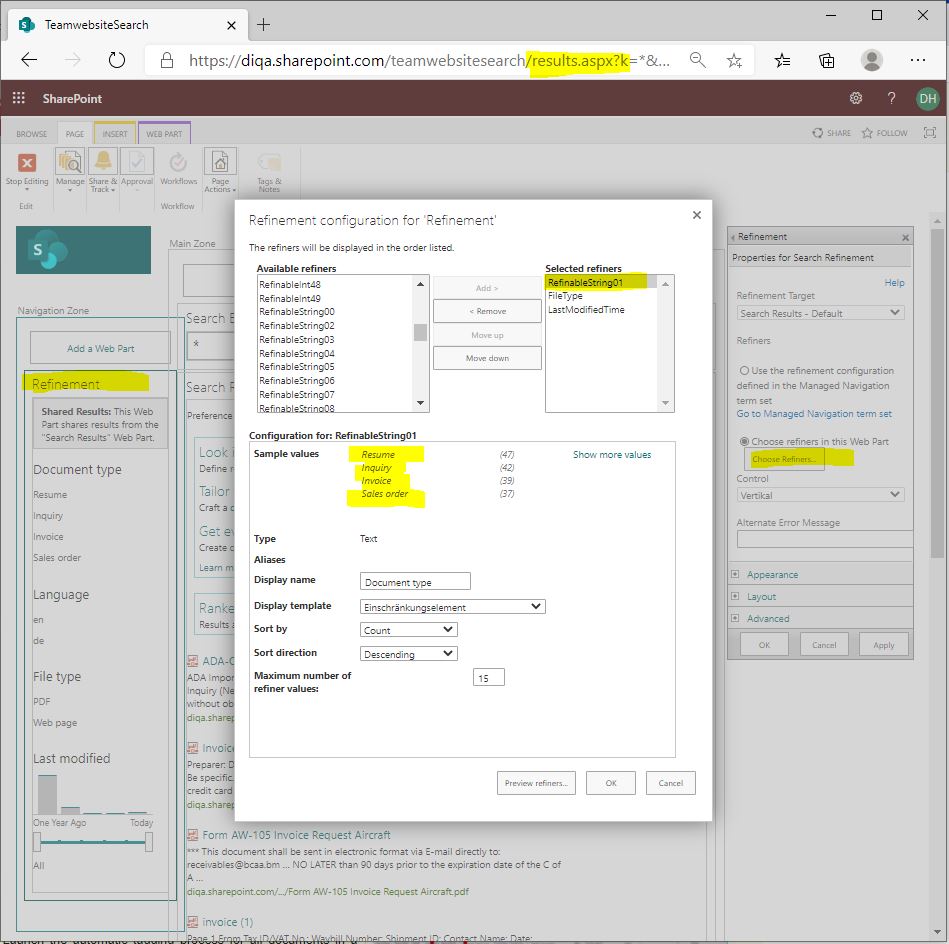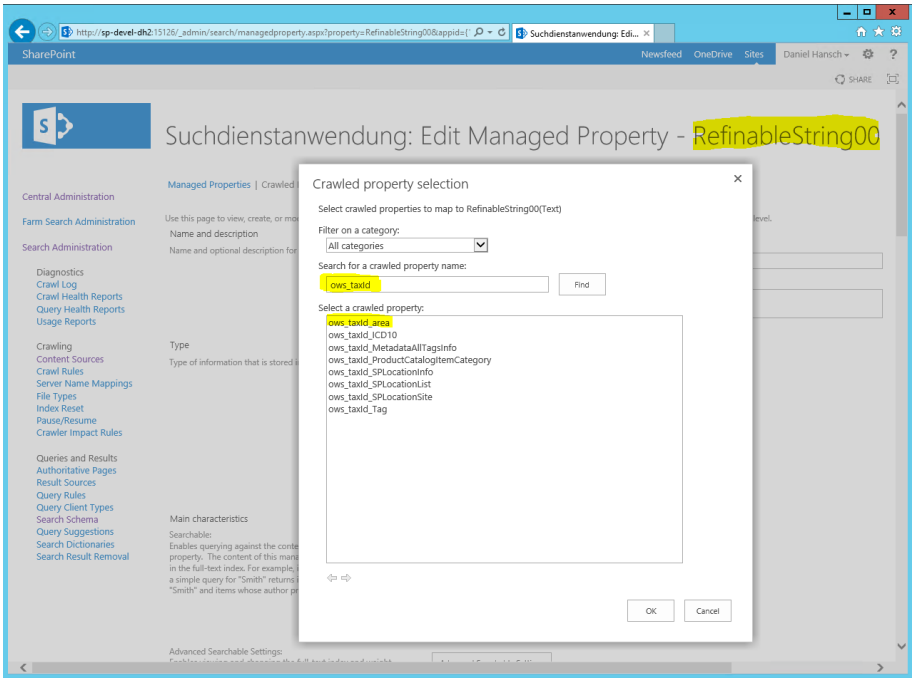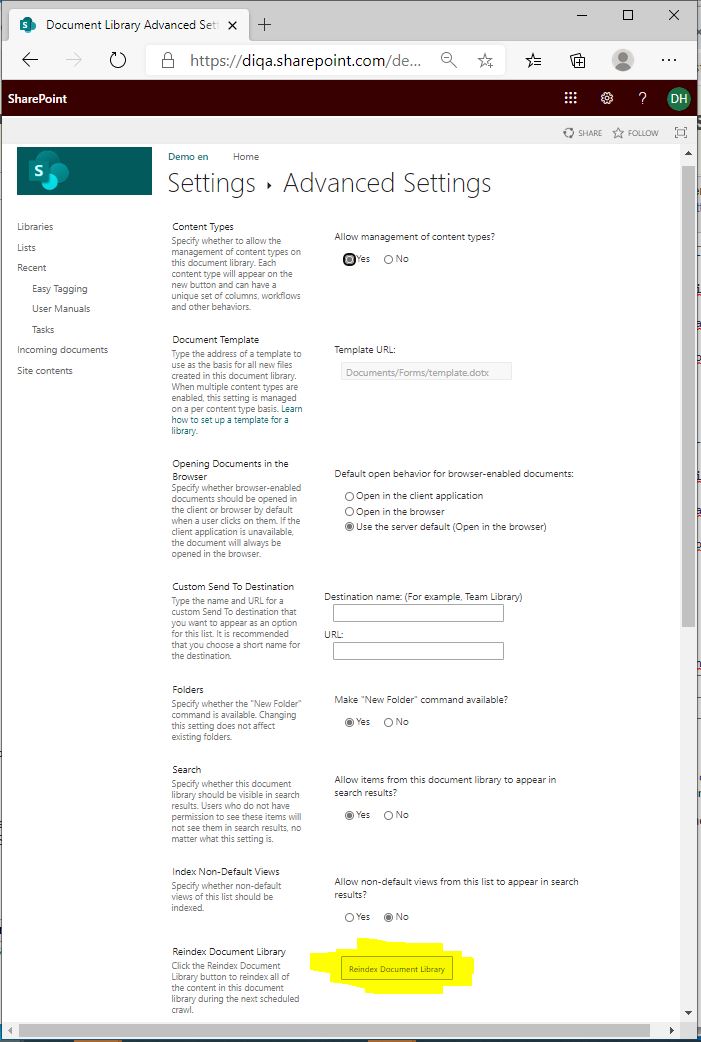Difference between revisions of "Blog/Refine search results by term trees"
| (3 intermediate revisions by the same user not shown) | |||
| Line 2: | Line 2: | ||
|Titel=Sharepoint: Improve the search experience with the TermTree Refiner | |Titel=Sharepoint: Improve the search experience with the TermTree Refiner | ||
|News image=File:EasyTaggingText.png | |News image=File:EasyTaggingText.png | ||
| − | |Publication date= | + | |Publication date=2021/05/06 |
| − | |Published= | + | |Published=1 |
|Keywords=sharepoint, office 365, o365 | |Keywords=sharepoint, office 365, o365 | ||
|SEO-Description=Automatic document tagging boosts your document findability? ⇒reade more! | |SEO-Description=Automatic document tagging boosts your document findability? ⇒reade more! | ||
| − | |Description=Finding documents in Sharepoint | + | |Description=Finding documents in Sharepoint can be tedious. If you have a hierarchy of terms, like product groups, series and products, then it is impossible to refine for terms that sit higher in the term tree, e.g. product groups or series. This frustrates users who cannot leverage the structural information of the term store. DIQA's TermTree Refiner Webpart overcomes this problem. Learn in this article how to use it and what it can do for your users. |
|en_link= | |en_link= | ||
|de_link= | |de_link= | ||
| Line 22: | Line 22: | ||
<div class="row"> | <div class="row"> | ||
<!-- --><div class="col-lg-6"> | <!-- --><div class="col-lg-6"> | ||
| − | == | + | == Better: filter documents by type, language, etc: == |
<html> | <html> | ||
| − | <div class="center"><div class="floatnone"><a href="/mediawiki_en/images/ | + | <div class="center"><div class="floatnone"><a href="/mediawiki_en/images/0/06/Treerefiner.PNG" class="image"><img alt="Tagcloud" src="/mediawiki_en/images/0/06/Treerefiner.PNG" width="100%" height="100%" style="vertical-align: middle" srcset="/mediawiki_en/images/0/06/Treerefiner.PNG 1x" data-file-width="" data-file-height=""></a></div></div> |
</html> | </html> | ||
<br> | <br> | ||
| − | ''The | + | ''The TermTree Refiner Webpart shows the terms in their tree-context. Users can easily drill-up or drill-down in the tree to broaden or narrow the search.'' |
<!-- --></div> | <!-- --></div> | ||
<!-- --><div class="col-lg-6"> | <!-- --><div class="col-lg-6"> | ||
| − | == | + | == Frustrating search experience without meaningful refiners: == |
<html> | <html> | ||
| − | <div class="center"><div class="floatnone"><a href="/mediawiki_en/images/ | + | <div class="center"><div class="floatnone"><a href="/mediawiki_en/images/a/aa/Treerefiner_standardrefiner.PNG" class="image"><img alt="Tagcloud" src="/mediawiki_en/images/a/aa/Treerefiner_standardrefiner.PNG" width="100%" height="100%" style="vertical-align: middle" srcset="/mediawiki_en/images/a/aa/Treerefiner_standardrefiner.PNG 1x" data-file-width="" data-file-height=""></a></div></div> |
</html> | </html> | ||
<br> | <br> | ||
| − | ''The | + | ''The standard refiner hides important information like the position of a search hit in the term tree. Additionally you cannot filter for parent terms, like product groups.'' |
<!-- --></div> | <!-- --></div> | ||
</div> <!-- row --> | </div> <!-- row --> | ||
Latest revision as of 15:32, 6 May 2021
Finding documents in Sharepoint online/Office 365 can be tedious. If you have a hierarchy of terms, like product groups, series and products, then you can easily refine search results for leaf terms. But it is impossible to refine for terms that sit higher in the term tree, e.g. product groups or series. This is because the standard refinement webpart shows leaf terms, only. This frustrates your users who cannot leverage the structural information of the term store.
You can provide your users with a better search experience if you use DIQA's TermTree Refiner. This Webpart extends the standard refiner webpart and visualises the terms in the hierarchical context of the term tree. Users can select terms in the hierarchy to drill down or drill up in the search results. This webpart makes use of managed metadata. This refinement webpart has these advantages over standard SharePoint-Search:
- The terms contained in the search results are presented in their tree-context
- Users can easily drill-up or drill-down in the tree to broaden or narrow the search
Better: filter documents by type, language, etc:
The TermTree Refiner Webpart shows the terms in their tree-context. Users can easily drill-up or drill-down in the tree to broaden or narrow the search.
What do you need to do to achieve this improved search experience? Just follow the steps below!
See the TreeRefiner Webpart in this video:


